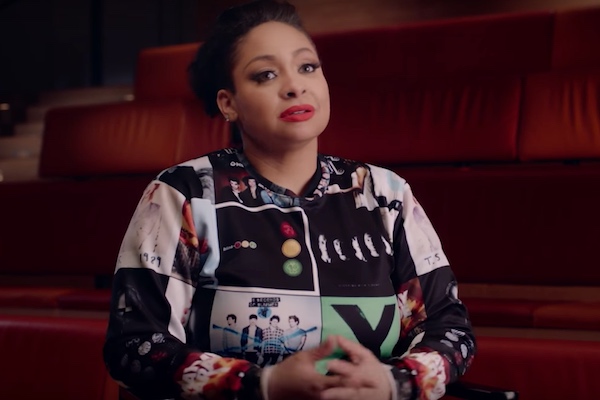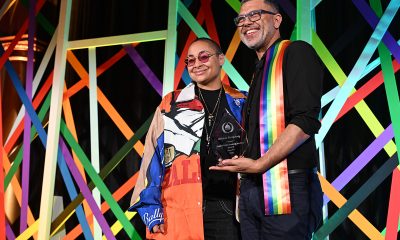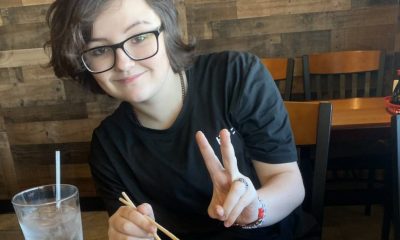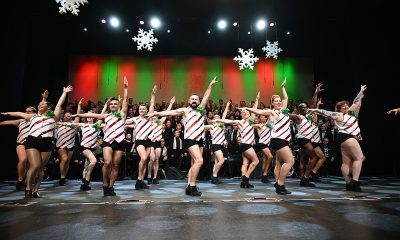Arts & Entertainment
Raven-Symoné says hiding her sexuality ‘ate at her soul’
actress says fame at a young age forced her to be closeted
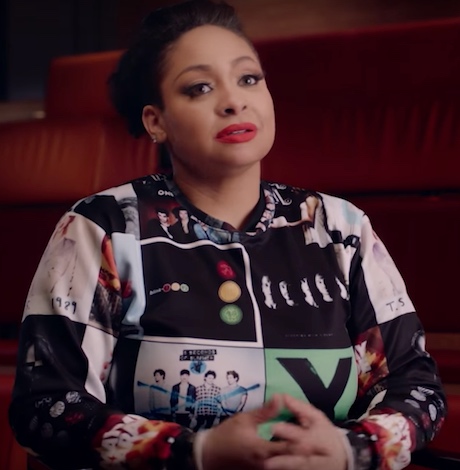
Raven-Symoné opened up about her struggle with her sexuality in the third season of “It Got Better,” a docu-series born from Dan Savage’s It Gets Better campaign.
In interview footage, the former child actress says hiding her identity “ate at her soul.”
“My likeness… however you see it at that time, had 15 people dictating what I should and should not look like. If I did whatever I want, it’s not gonna sell. It doesn’t go with the brand. I was branded at such a young age. I kinda pushed myself to look for boys,” Raven-Symoné, 30, says. “I look back now like, ‘Woah, you like girls.'”
“I didn’t wanna tell my parents,” Raven-Symoné continues. “I had the number one show on Disney. I had multiple albums, I’d been on tour with *NSYNC… I didn’t wanna deal with that. I never thought I would come out because my personal life didn’t matter. It was only what was supposed to be sold as the Raven-Symoné brand.”
The actress says that when she when she took a break from the entertainment industry and went to college she finally had the freedom to be herself.
“I didn’t have to have a ‘beard.’ I didn’t have to have a man standing by me. I felt lighter, I felt like I could go out and not have to put on 17 different hats to be myself,” Raven-Symoné says.
This is the first time Raven-Symoné has candidly discussed her sexuality. The first public mention of her sexuality was in 2013 when she tweeted “I can finally get married! Yay government! So proud of you” after the legalization of same-sex marriage in California. She was in a relationship with model AzMarie Livingston for four years before the couple split in 2015.
“It Got Better” launches on Tuesday on L/Studio, Lexus’ digital content channel. Other interviews will include Sir Ian McKellen, Candis Cayne, Adam Lambert, EJ Johnson and Wanda Sykes.
a&e features
Local, last-minute holiday gift ideas
Celebrate the season while supporting area businesses
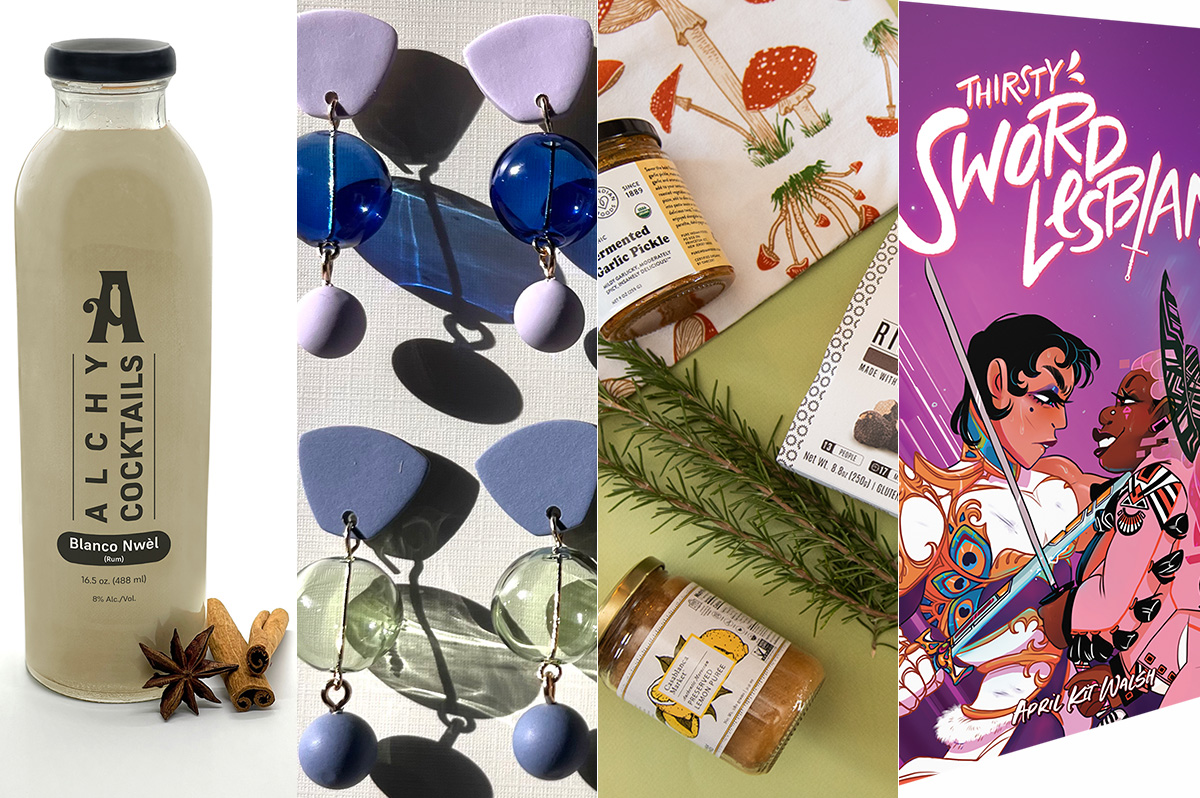
The DowntownDC Holiday Market is bustling. Union Station is decked out with its annual Christmas tree. Washingtonians have wrapped their houses and apartment balconies with festive lights and holiday decorations. The holiday season is here. And with stockings to fill and empty space under the tree, Washington’s local shops and artists have plenty to offer.
Show your LGBTQ and D.C. pride with the Washington Blade’s annual holiday gift guide.
To embrace the holiday buzz: The Blanco Nwèl cocktail from Alchy Cocktails. This Caribbean eggnog is one of Alchy Cocktail’s seasonal holiday cocktails. The flavor profile is similar to coquito, a traditional Puerto Rican Christmas drink with a coconut base. As a queer and Caribbean-owned business, Alchy Cocktails has been based out of Washington since 2021. Blanco Nwèl is available in both cocktail ($24) and mocktail ($12) online and at a variety of holiday markets, including the Tingey Plaza Holiday Market, the Flea Market at Eastern Market, Union Station’s Main Hall Holiday Market, and more. ($24)
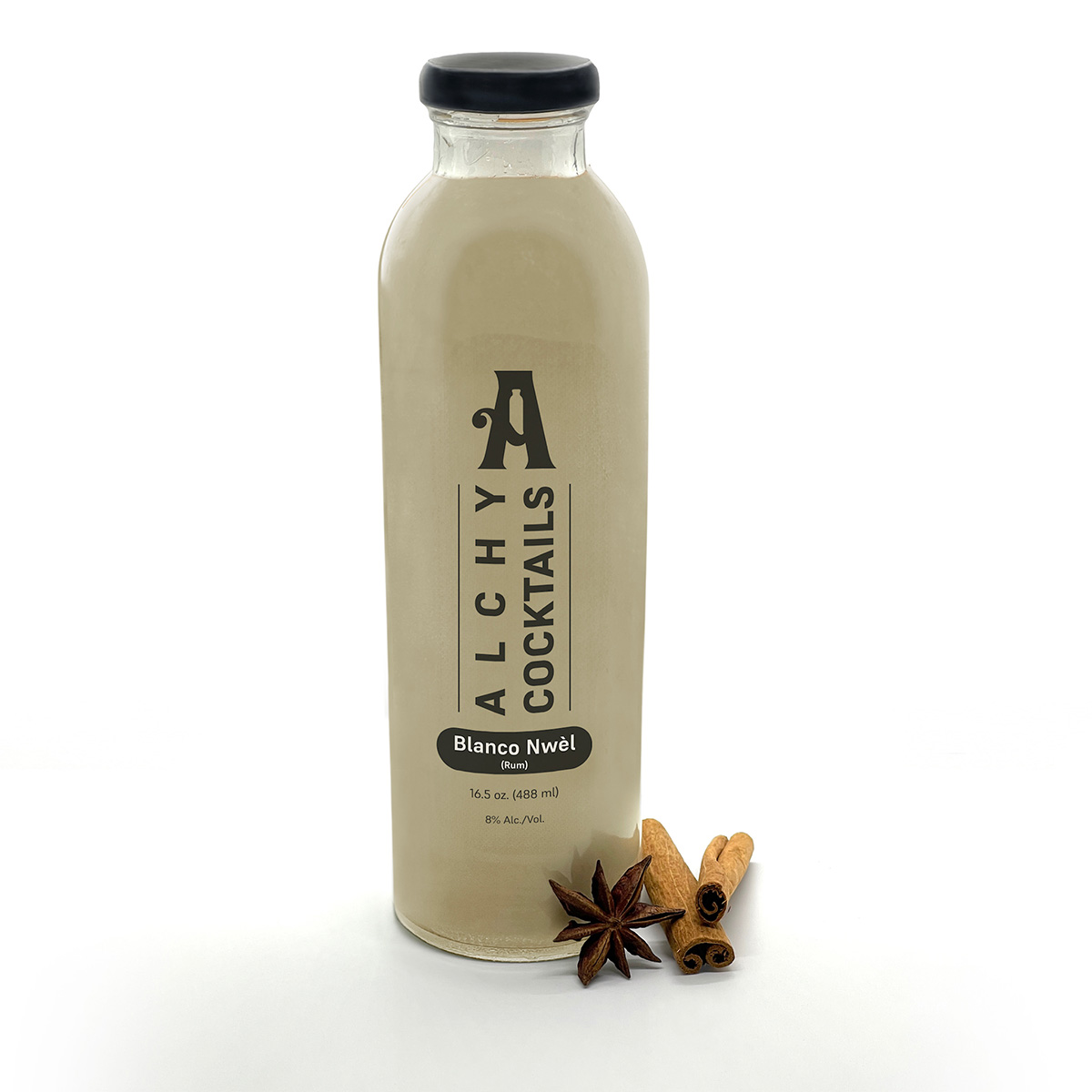
A spicy bite: Gordy’s Cajun Okra from Salt and Sundry. These spicy, tangy pickles pull on Southern Cajun-style flavors, packing a punch with paprika, cayenne, and more. Gordy’s is an LGBTQ-owned and Washington-based brand, making this gift an opportunity to support a local LGBTQ business straight from the jar. This pantry staple is available on Salt & Sundry’s website and at its locations in Union Market, Logan Circle, and its Georgetown holiday pop-up store. ($14)
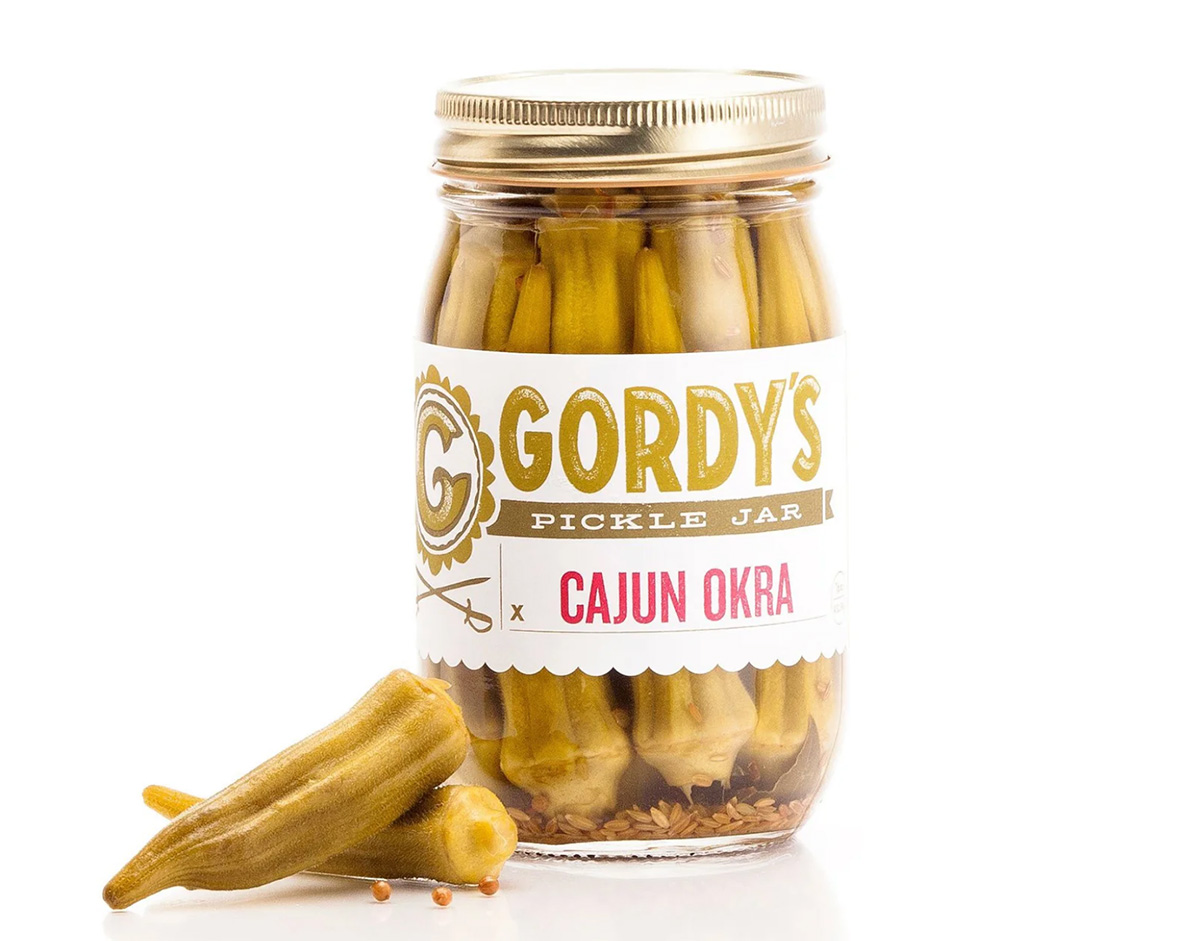

To celebrate Washington pride: The DC Landmark Tote Bag from The Neighborgoods. Native Washingtonians, visitors, friends and family alike will find something to love about this Washington-themed tote bag. Food trucks, the 9:30 Club, the Metro logo and pandas from the National Zoo are just some of the city’s landmarks depicted across the tote in a red, white, and blue color palette. The tote is a part of the DC Landmarks collection, which donates 10 percent of its sales to the American Civil Liberties Union. The Neighborgoods itself is a local, woman-owned business built out of a passion for screen-printing in 2013. The 100 percent cotton canvas tote is for sale online or at the DowntownDC Holiday Market. ($22)
To give friends and family their flowers: The Flowers Bandana from All Very Goods. This 100 percent cotton bandana was designed in Washington and hand printed in India. Its uniqueness comes in being covered with the faces of Black women, representing a “love letter to all women but especially Black women,” according to All Very Goods. The Black woman-owned and operated business, based out of Northwest Washington, has a mission to celebrate diversity and representation through its products. The bandana intends to give Black women their “flowers.” The Flowers bandana is available for purchase online. ($24)
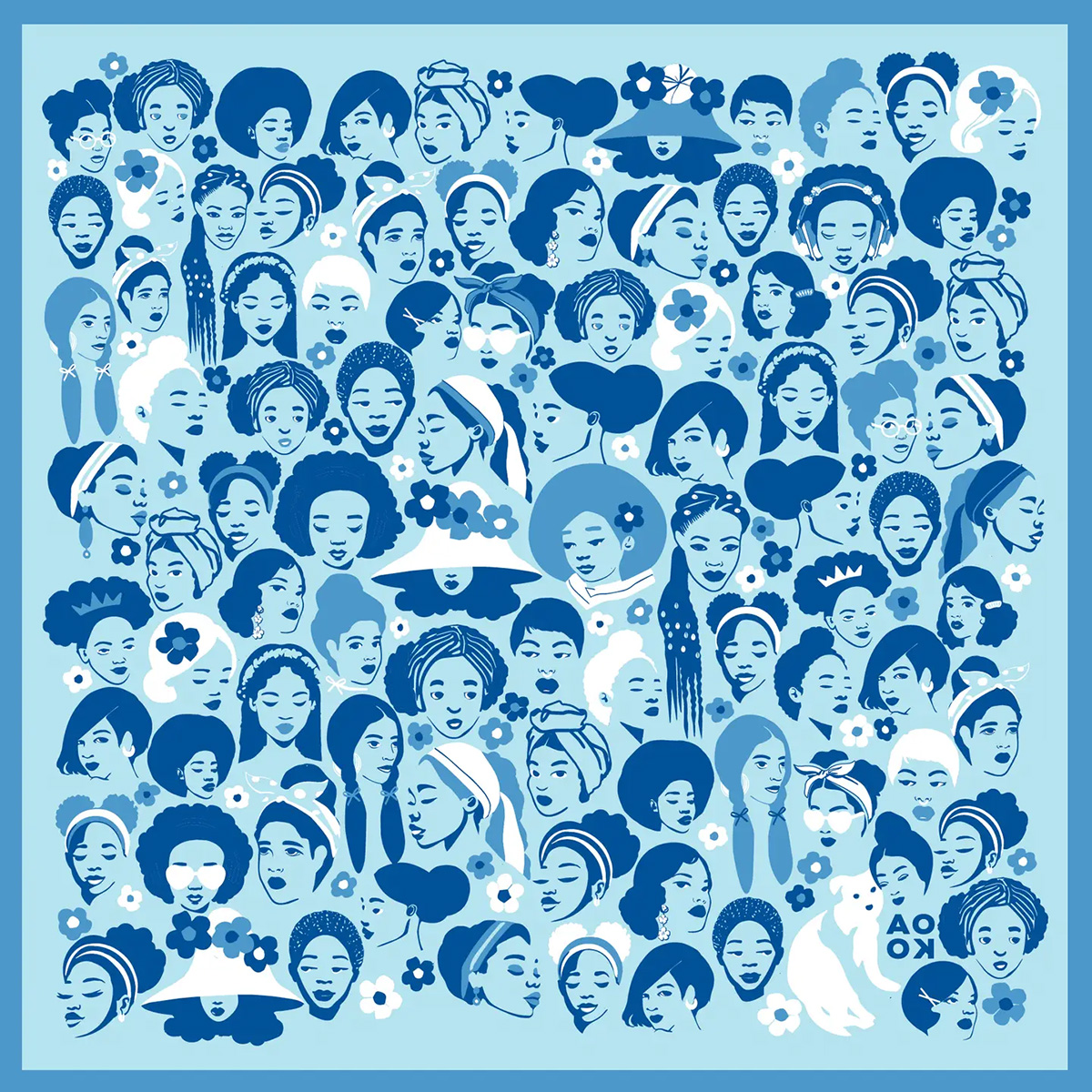
To unlock culinary creativity: The Curious Chef Gift Collection from Each Peach Market. This customizable collection of kitchen oddities — ranging from tinned fish to chili oil — is a quirky gift for the most inventive chefs. The collection is available in a Standard Santa, Extra Goodies and Super Holiday Size for up to $165. The Washington-based market, founded in 2013, permits customers to make the collection special by specifying what unique ingredients are packaged, including products made by local or LGBTQ brands. Each Peach Market offers assembly and pick up in-person at its Mount Pleasant shop and also offers local delivery and nationwide shipping via its website. ($85)
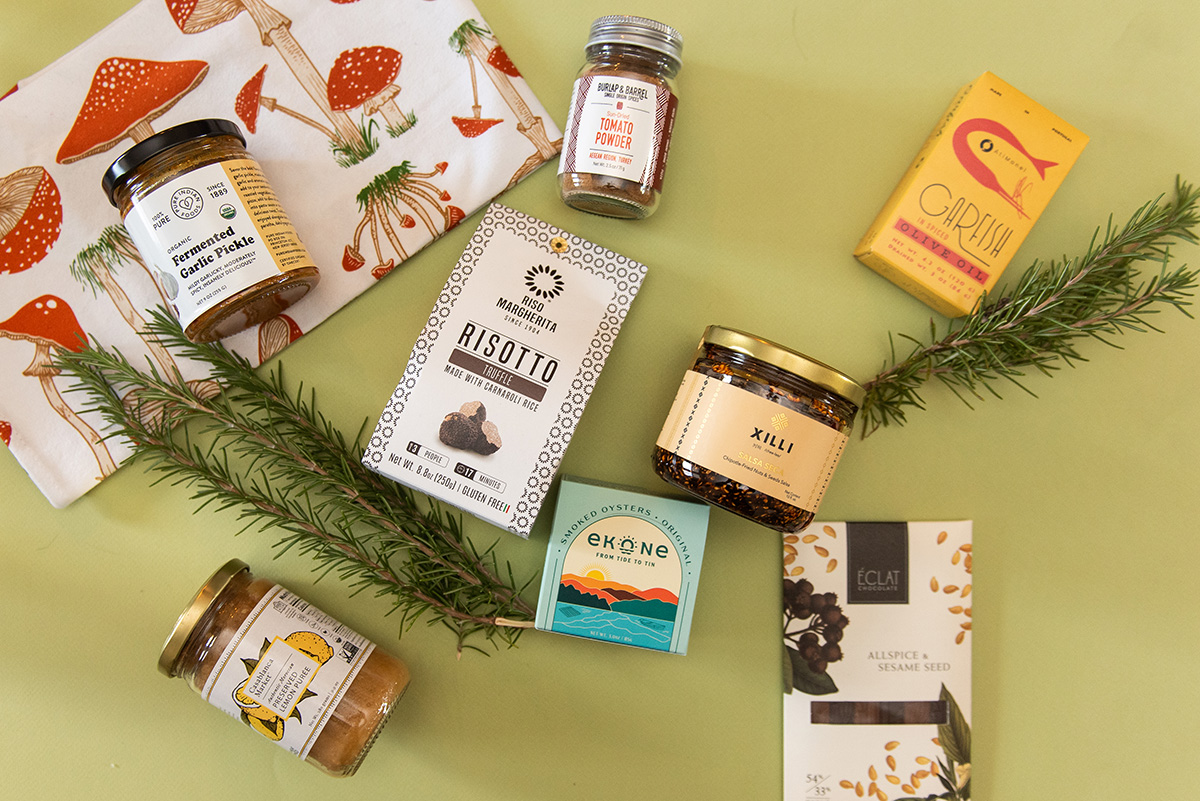
To give a touch of sweetness: The DC Landmark Chocolate Covered Oreo Holiday Cookies from Capital Candy Jar. Wrapped in a festive red bow, this box of nine cookies embraces love for Washington and the holiday season in one. Among the dark and milk chocolate covered cookies are images of the U.S. Capitol, the White House, the Lincoln Memorial, the Jefferson Memorial and festive hollies. The treat, packaged in a Hill East facility just a few blocks from the Capitol, is available for purchase online and at the DowntownDC Holiday Market. ($23.95)


To celebrate queer gaming: Thirsty Sword Lesbians from Labyrinth Games & Puzzles. This roleplaying game embraces lesbian culture by unlocking a world of swords, romance, and battle. Ideal for group settings, the book presents a system of world building and character identities that are best brought to life by creative minds. Labyrinth, which has been a local Washington business for more than 15 years, celebrates non-digital fun through games and puzzles that connect the community. This gift is offered online and at Labyrinth’s Capitol Hill location. ($29.99)
To make a bold statement: The “Resist” T-shirt from Propper Topper. This locally screen-printed black tee features the Washington flag designed within a raised fist, symbolizing both Washington pride, and political resistance. The shirt is made exclusively by Propper Topper, a local Washington business that evolved from a hat shop to a gift store since opening in 1990. The tri-blend unisex shirt is available both for pickup at Propper Topper’s Cathedral Heights location and shipping via the online site. ($32)
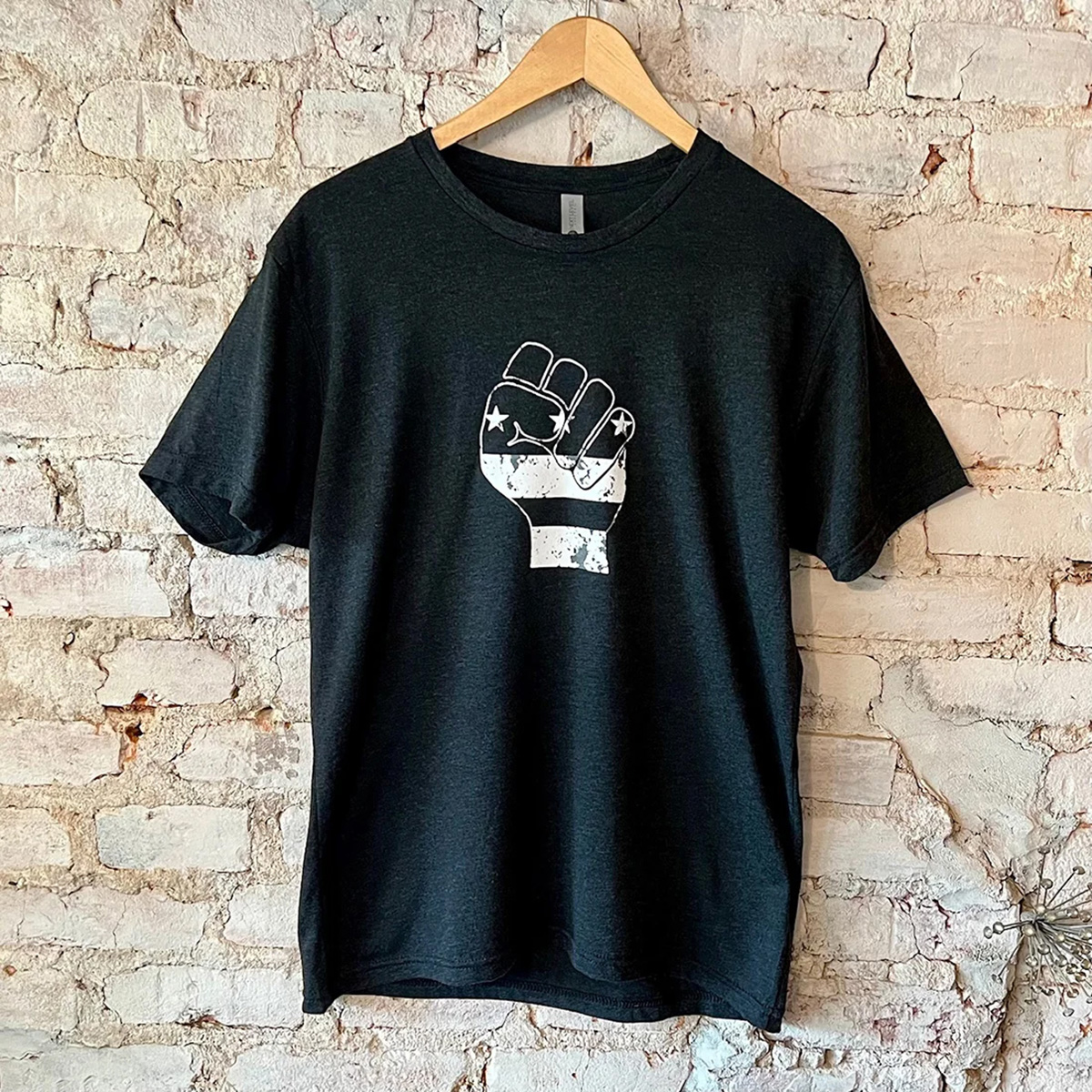
To keep it c(g)lassy: The Glass Ball earrings from Blue Moon Aquarius. Gifting can rarely go wrong when it comes to a new pair of earrings. The unique statement earrings — made of polymer clay, glass, and 18k gold plating over surgical steel — are hand cut, sanded and assembled in Washington, meaning each set is unique. Blue Moon Aquarius, a local brand, is known for its small batch jewelry and home decor designed with clay materials. Available in oxblood, hunter green, lavender, and bluestone color palettes, these earrings are available for purchase on Blue Moon Aquarius’ website and at the DowntownDC Holiday Market. ($48)
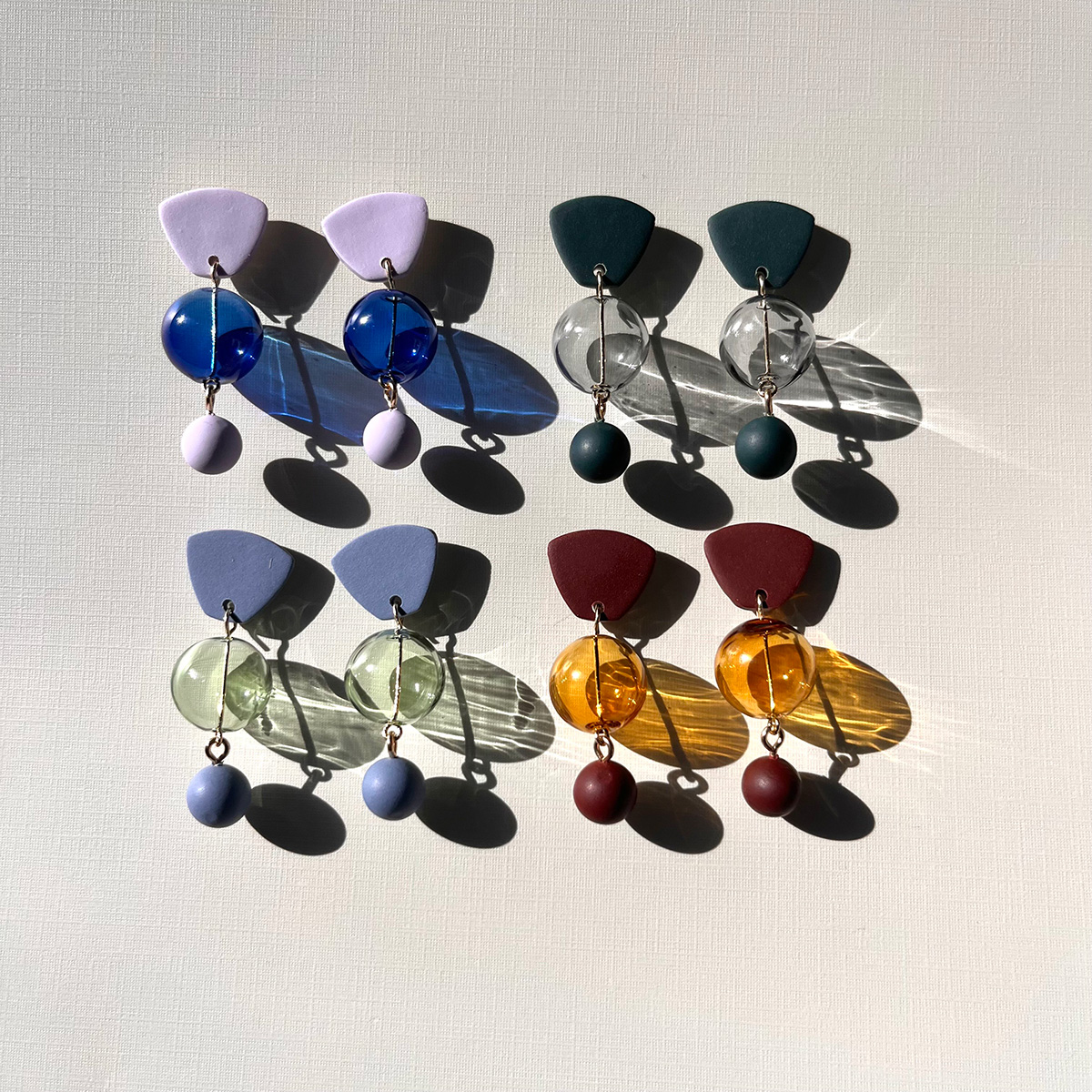
To elevate a holiday tea or charcuterie party: The Honey Flight: Tea Lover’s Selection from BannerBee. This local honey company presents the ideal gift to make cozying up with a cup of tea slightly more special. The Honey Flight contains three types of raw wildflower honey infused with fair trade Ugandan vanilla bean, chai spices, and locally sourced lemon thyme herb. The gift is also an opportunity to uplift a family company based in the Mid-Atlantic that offers all-natural, sustainable products. The flight is available online, at the DowntownDC Holiday Market or at the Arlington Courthouse and Dupont Farmers’ Markets. ($36)
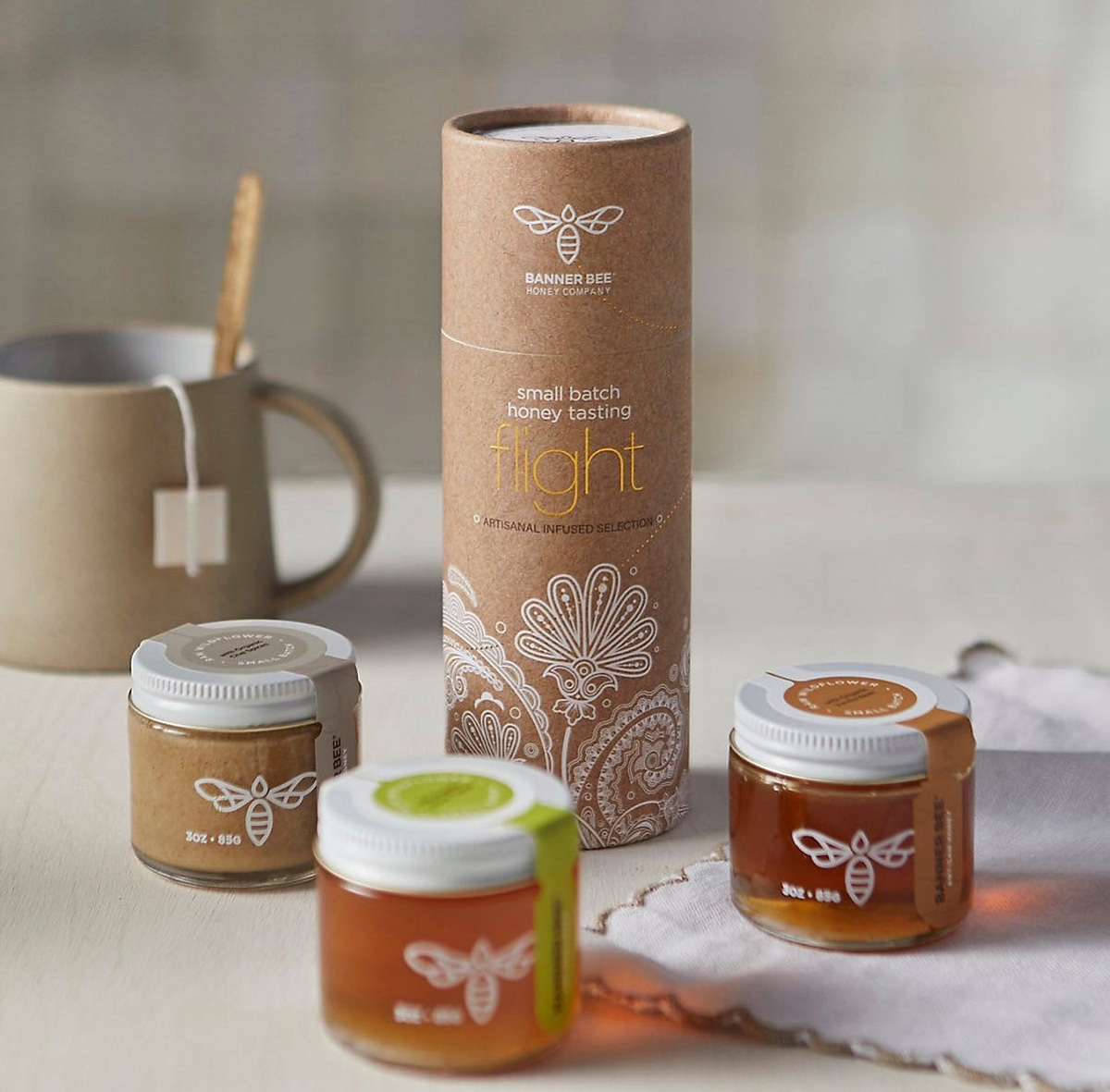
For Baltimore shoppers: If you’re in Charm City, don’t miss Balston Mercantile, opened by a gay couple in June. Their gorgeous shop in the Hampden neighborhood offers an array of unique, upscale finds, from barware and artwork to cookbooks and home decor and more. (849 W. 36th St.)
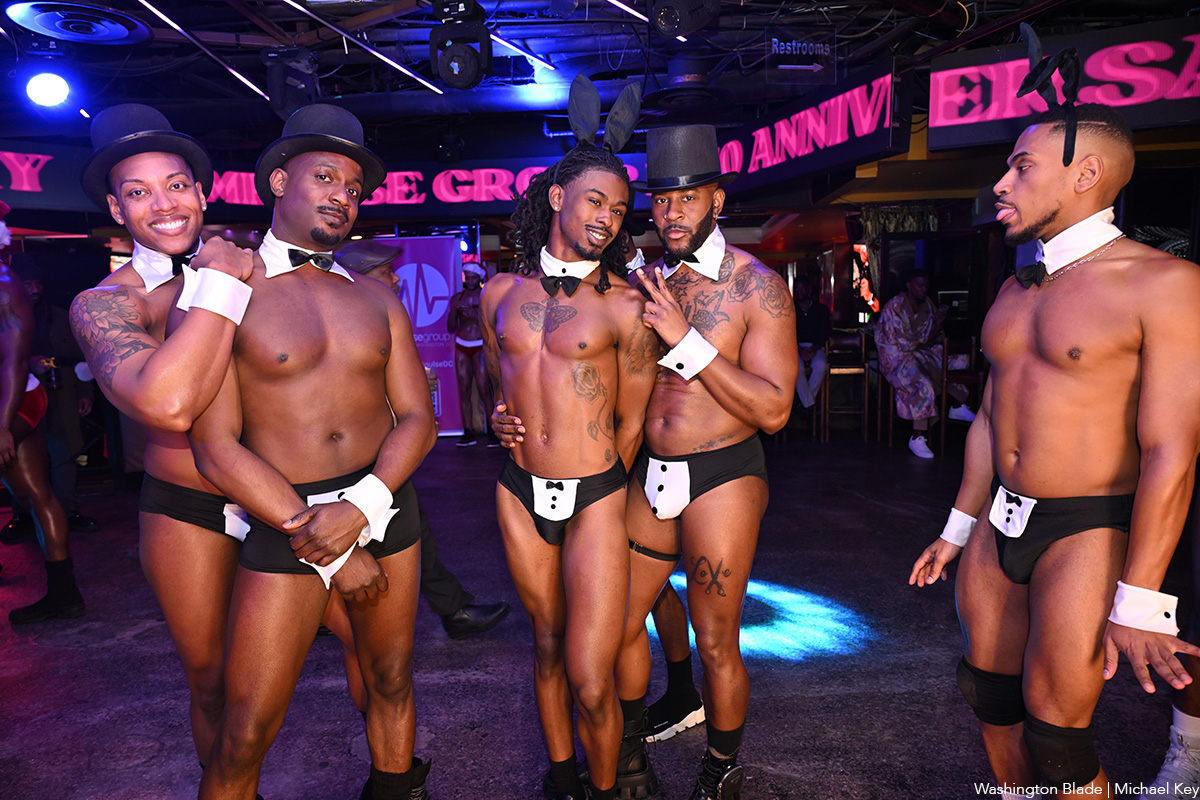
Impulse Group DC held “10’s Across the Board: A Celebration of 10 Years” at Bravo Bravo (1001 Connecticut Ave., N.W.) on Sunday, Dec. 14. Impulse Group DC is a volunteer-led 501(c)(3) and affinity group of AIDS Healthcare Foundation dedicated “to engaging, supporting, and connecting gay men” through culturally relevant health and advocacy work.
(Washington Blade photos by Michael Key)
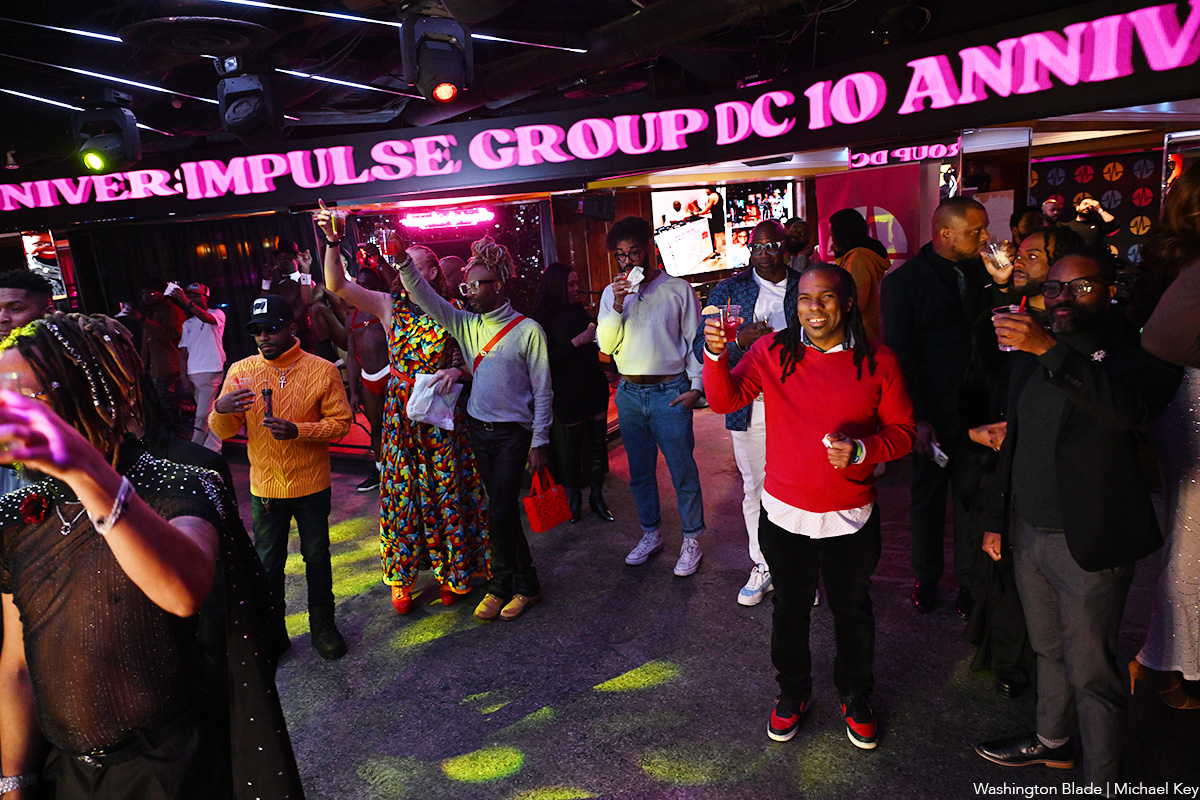
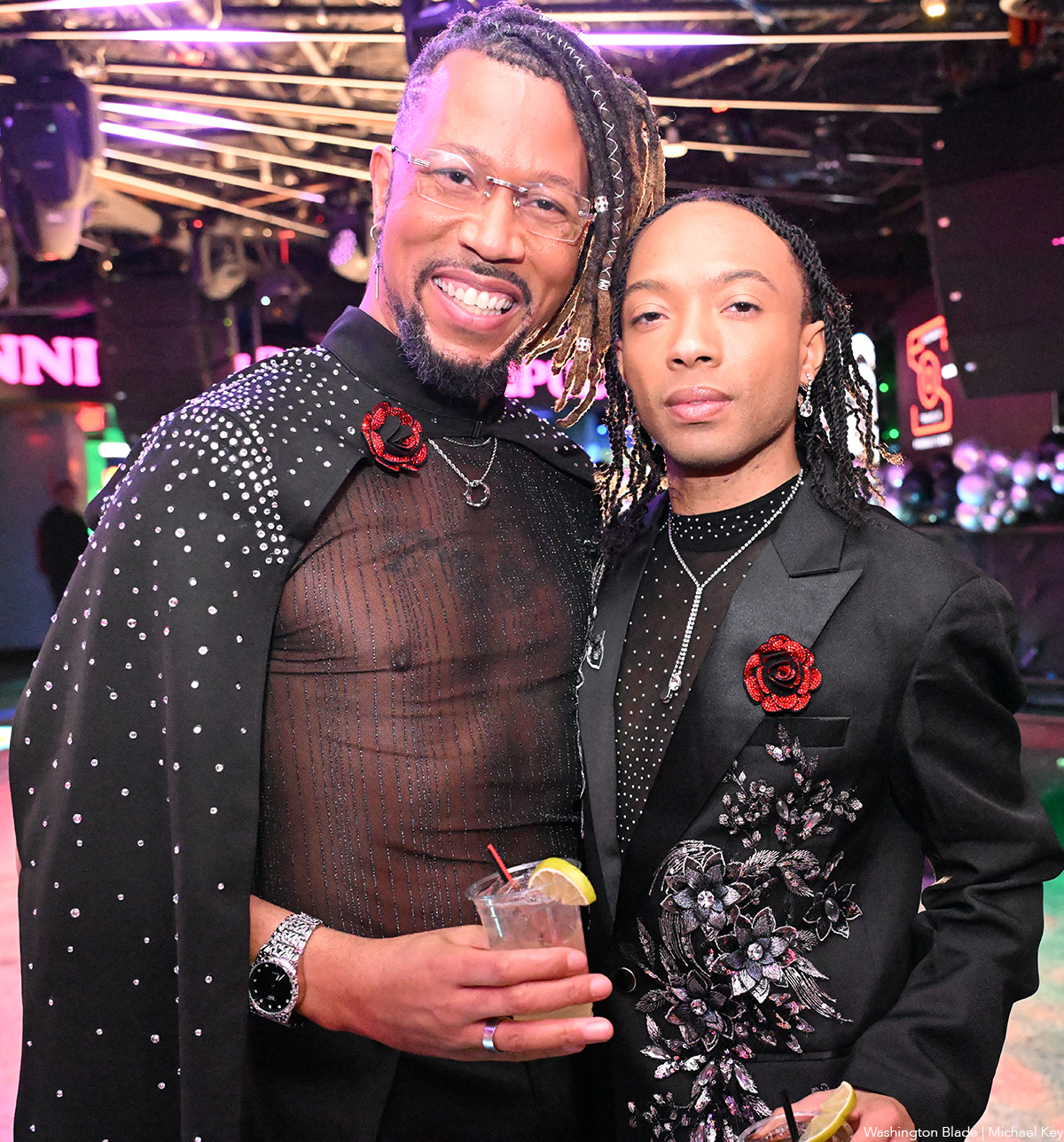
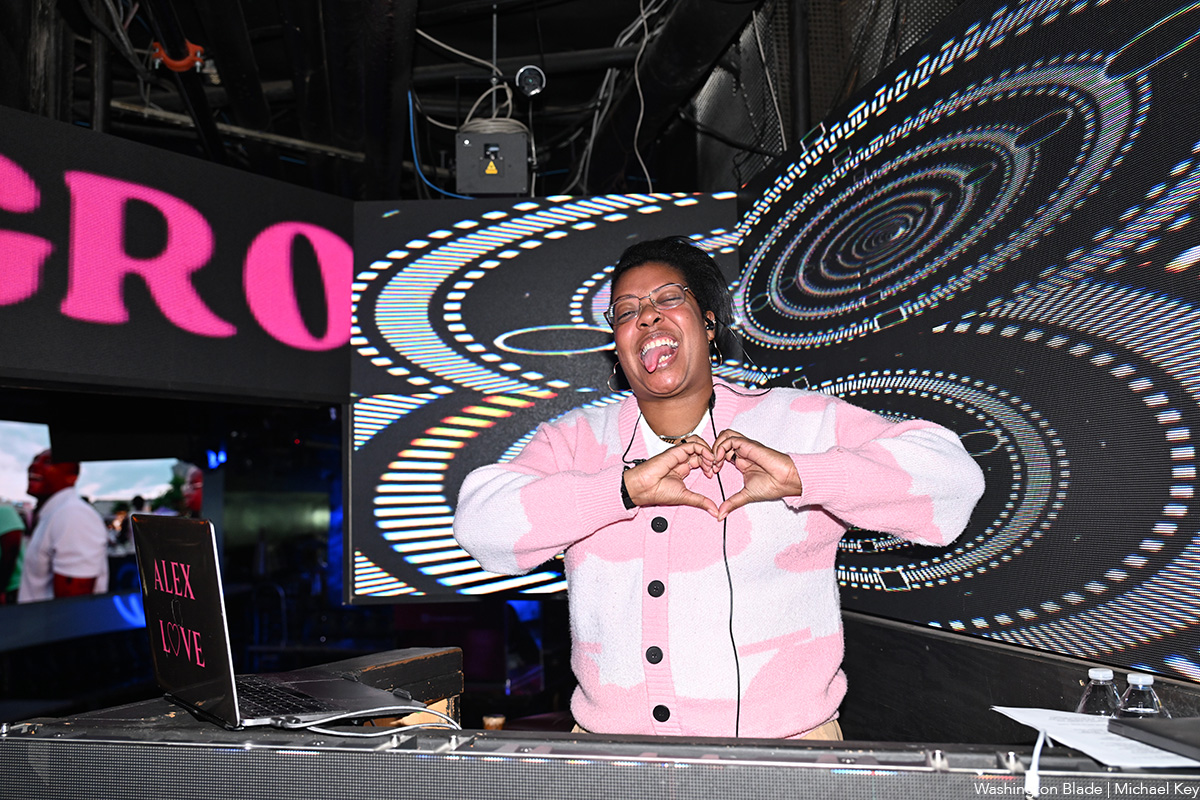
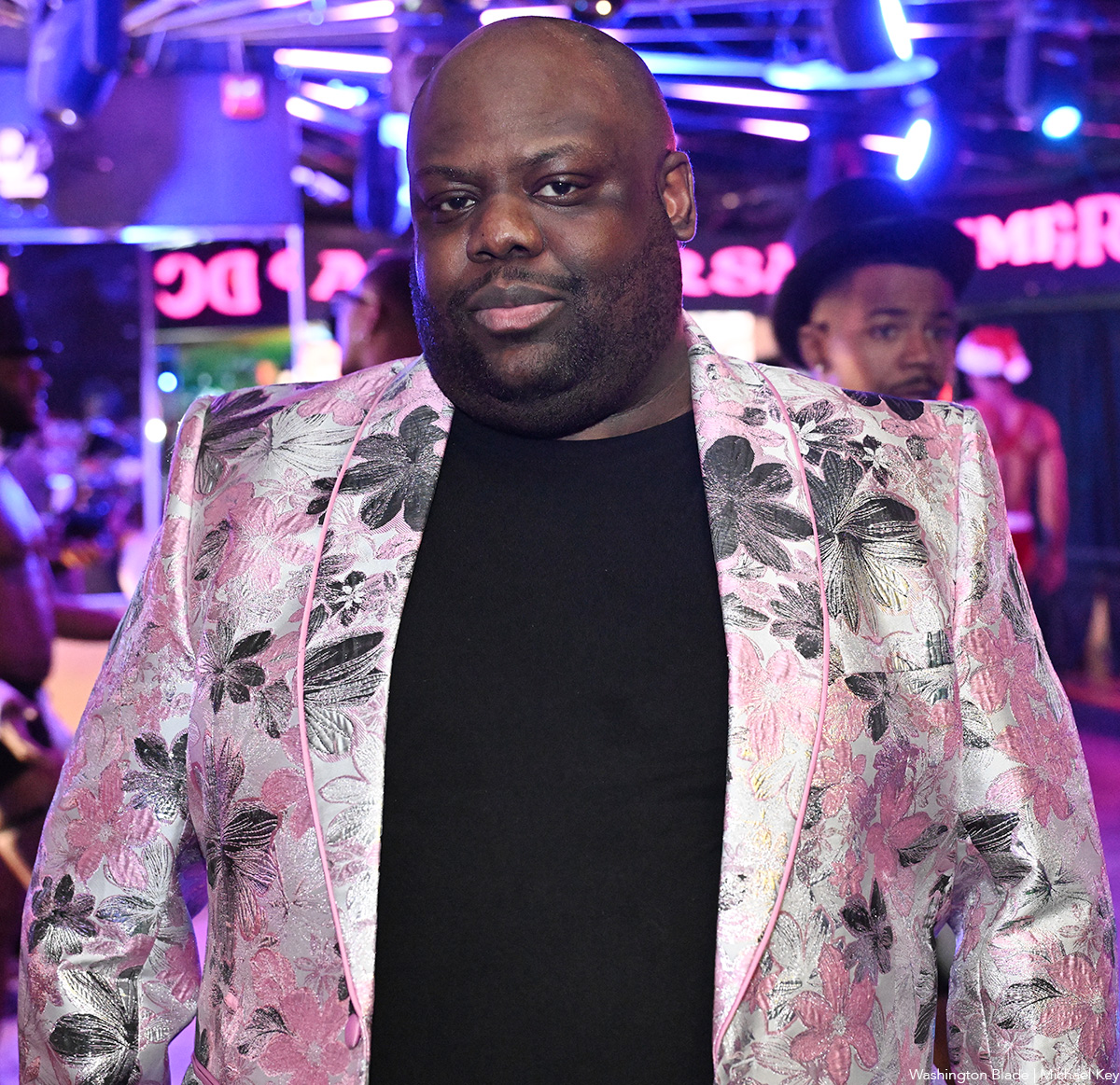
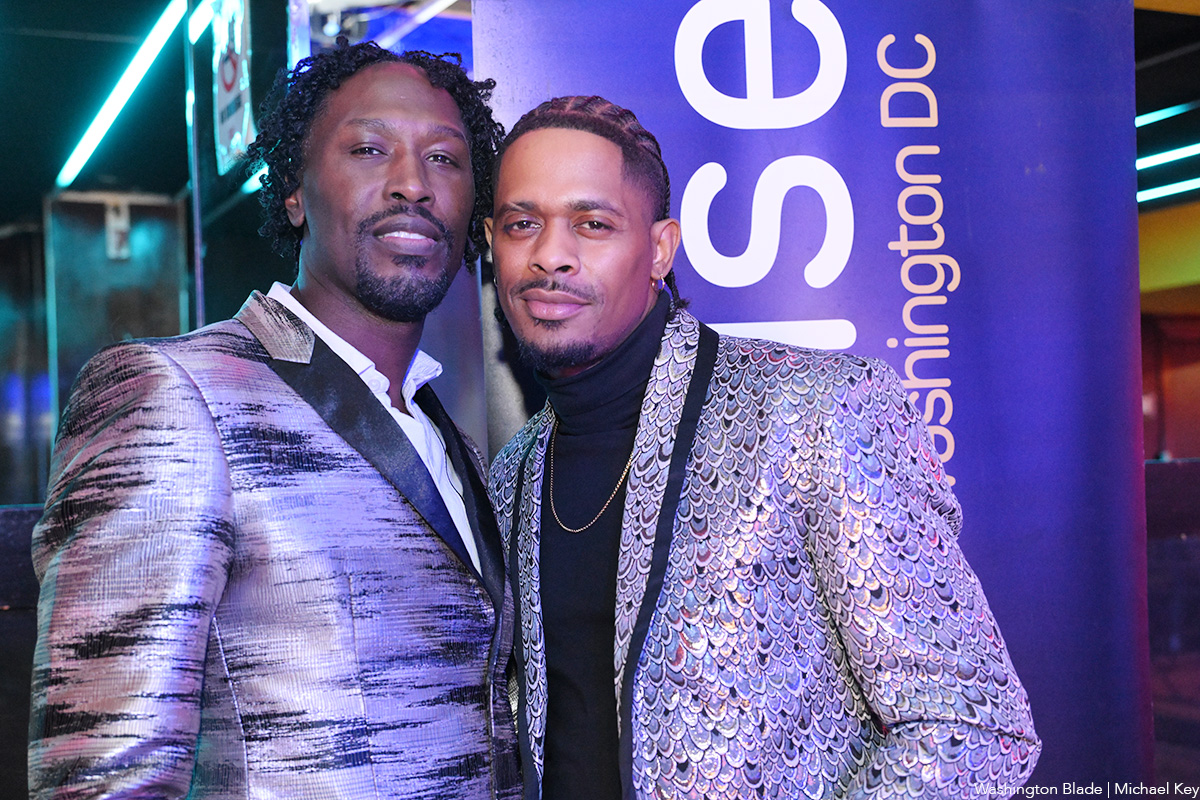
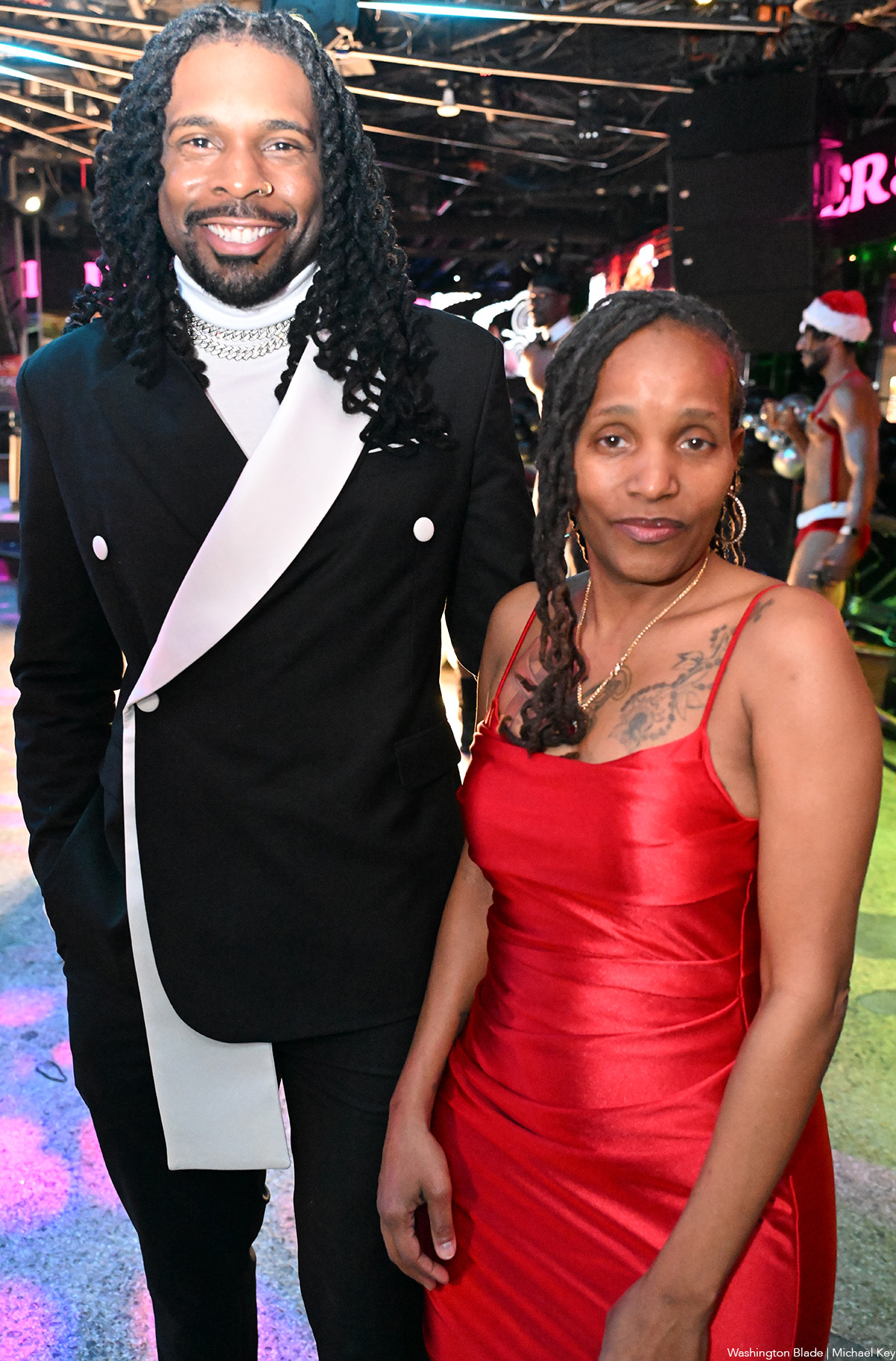
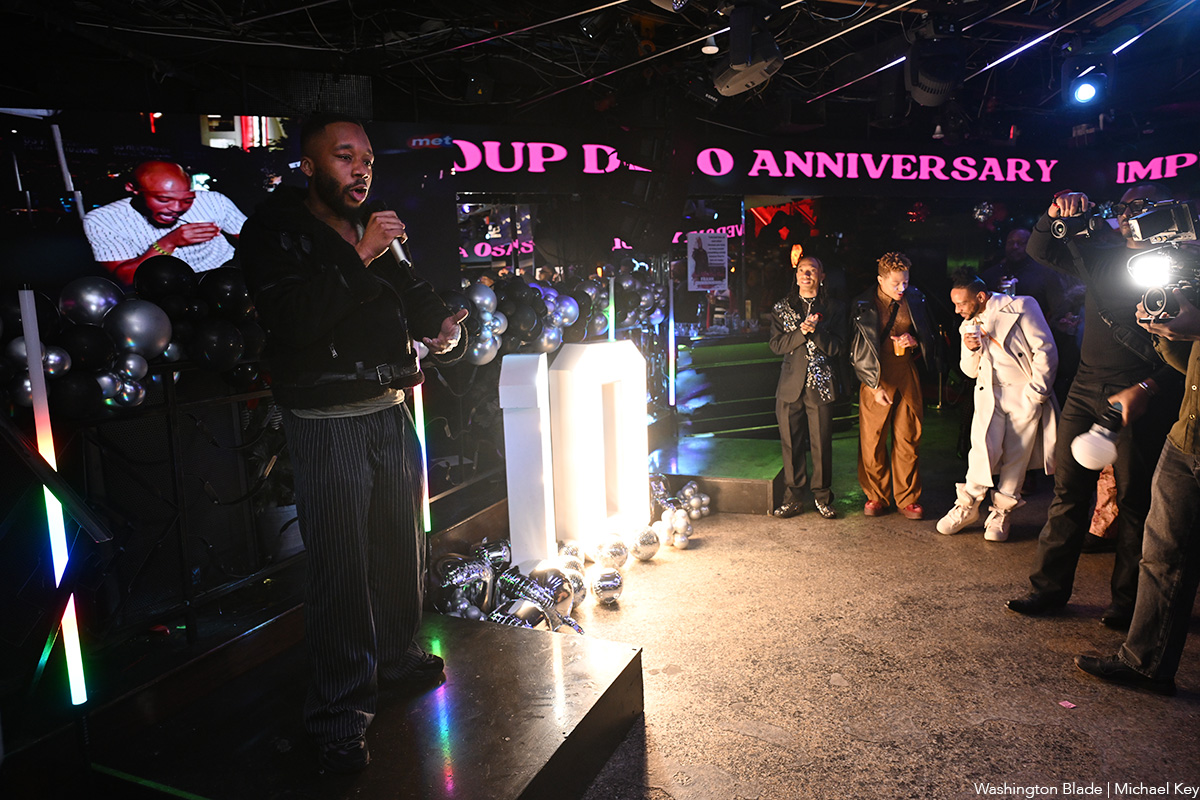
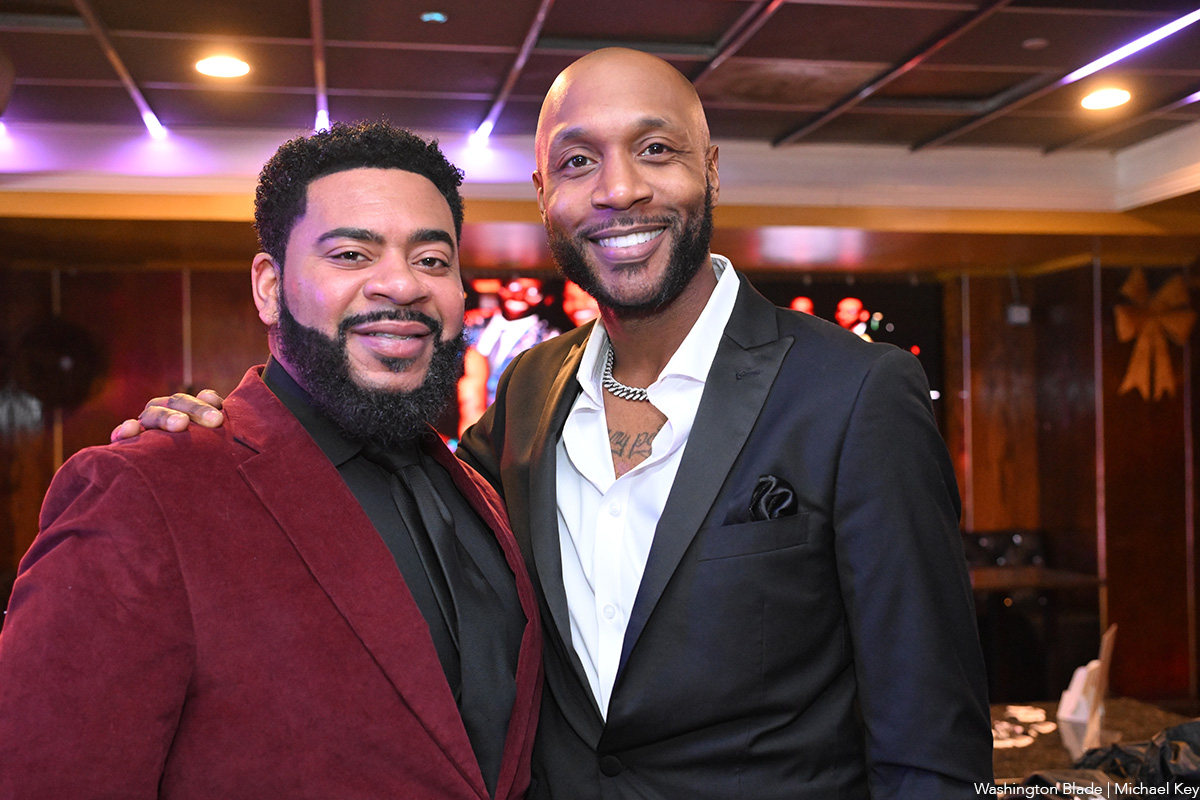
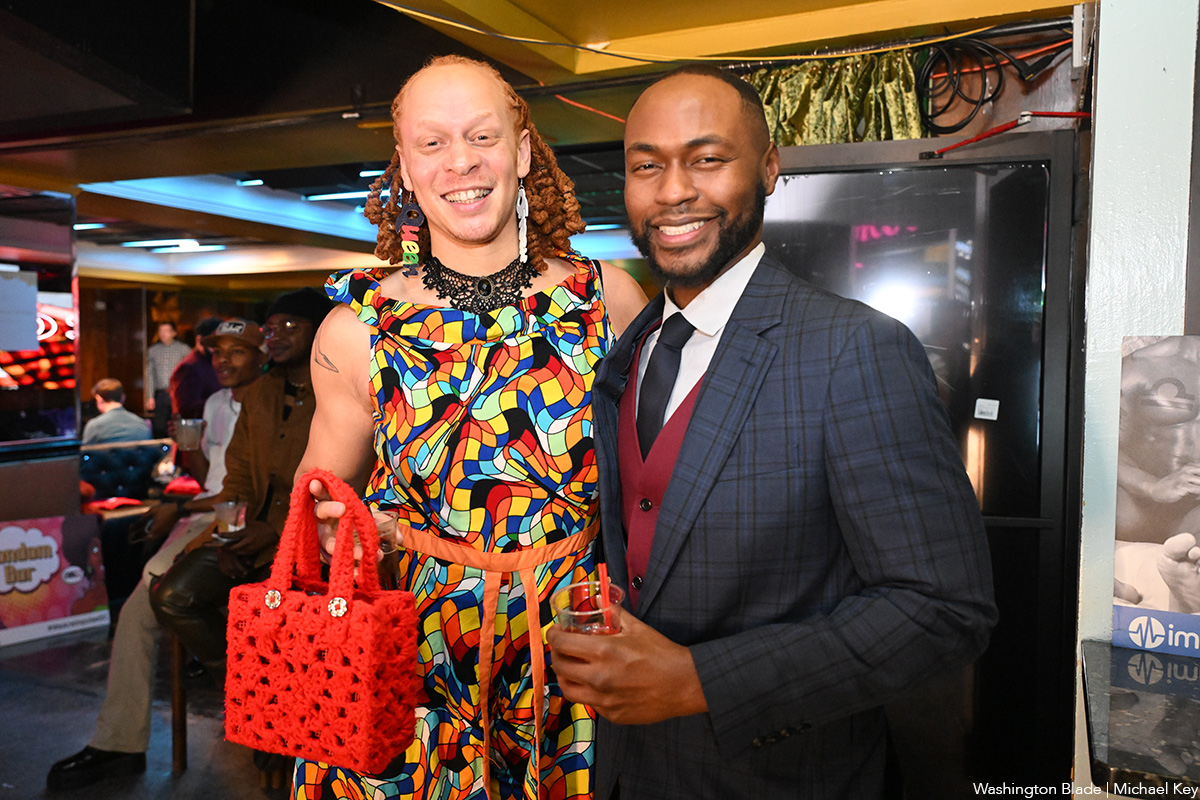
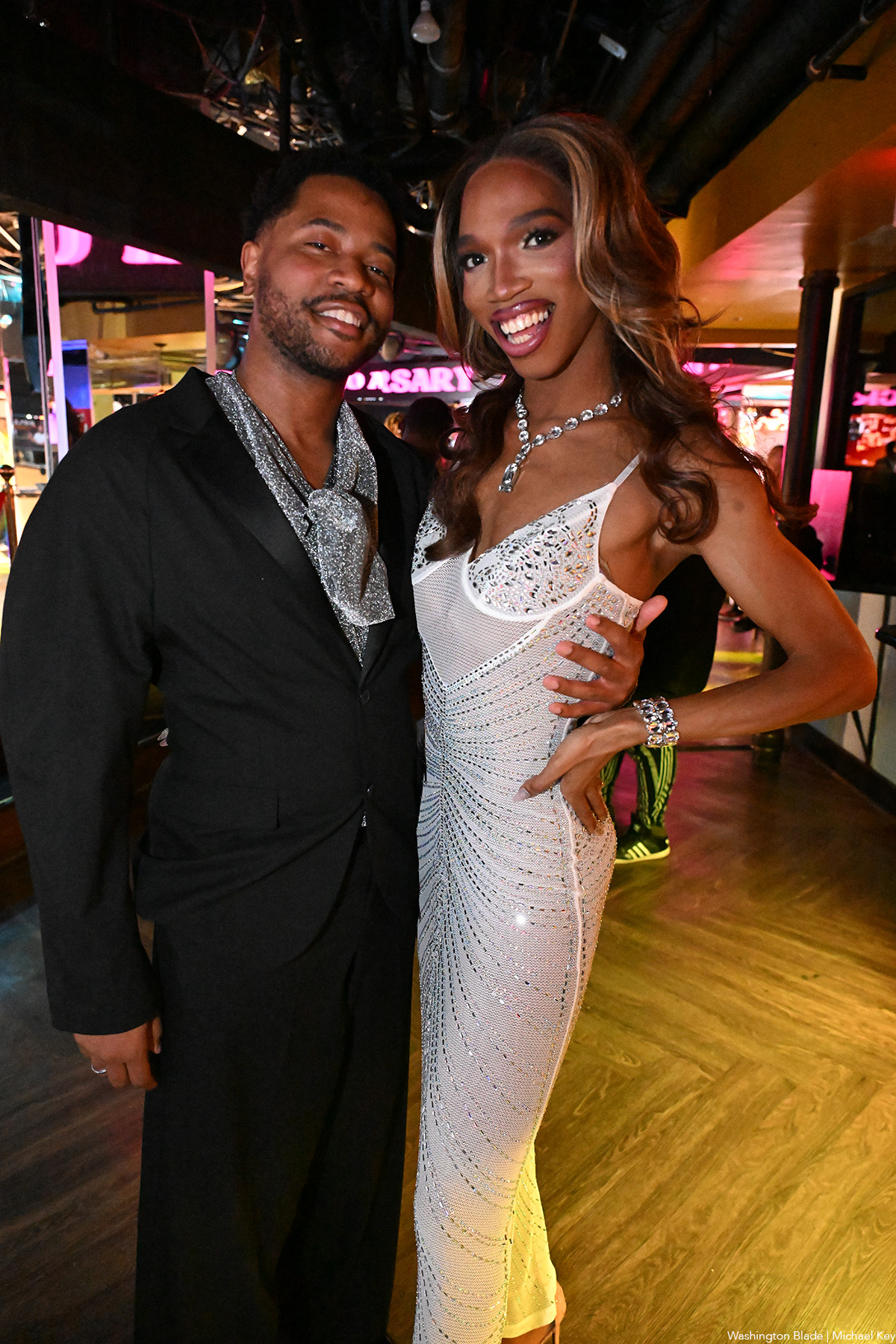
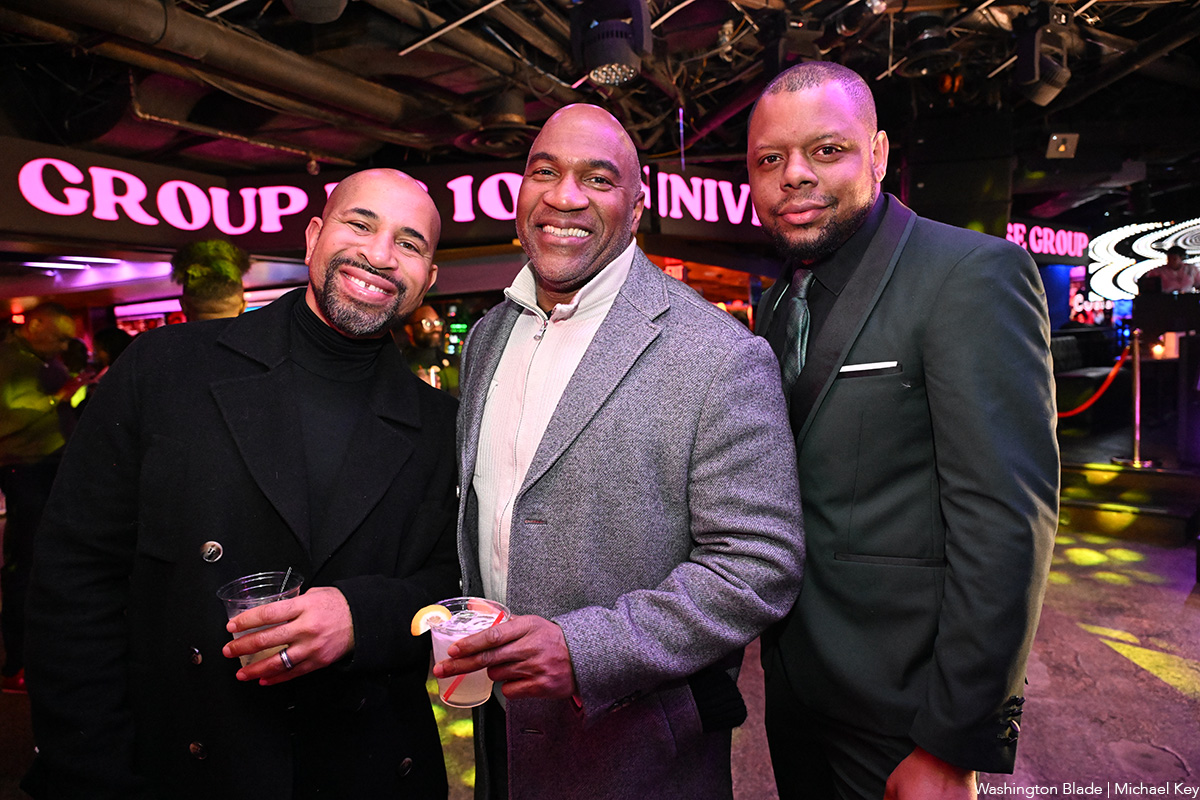
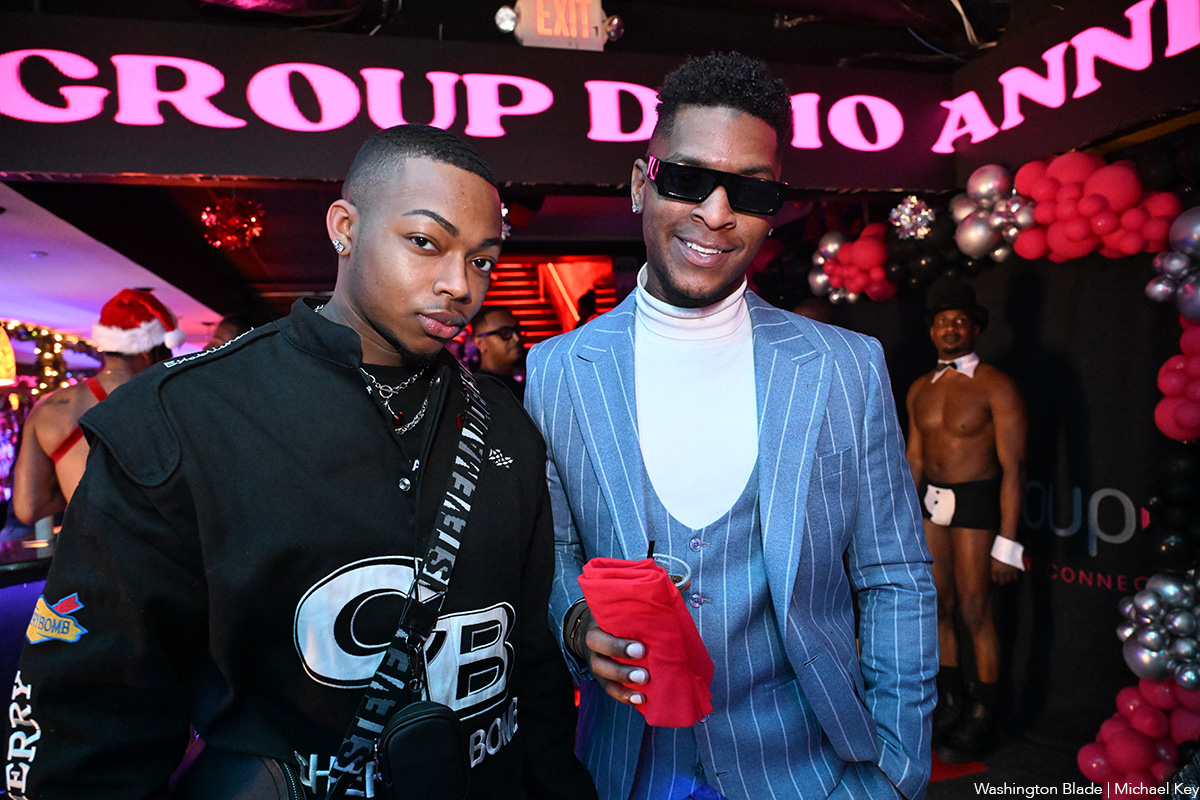
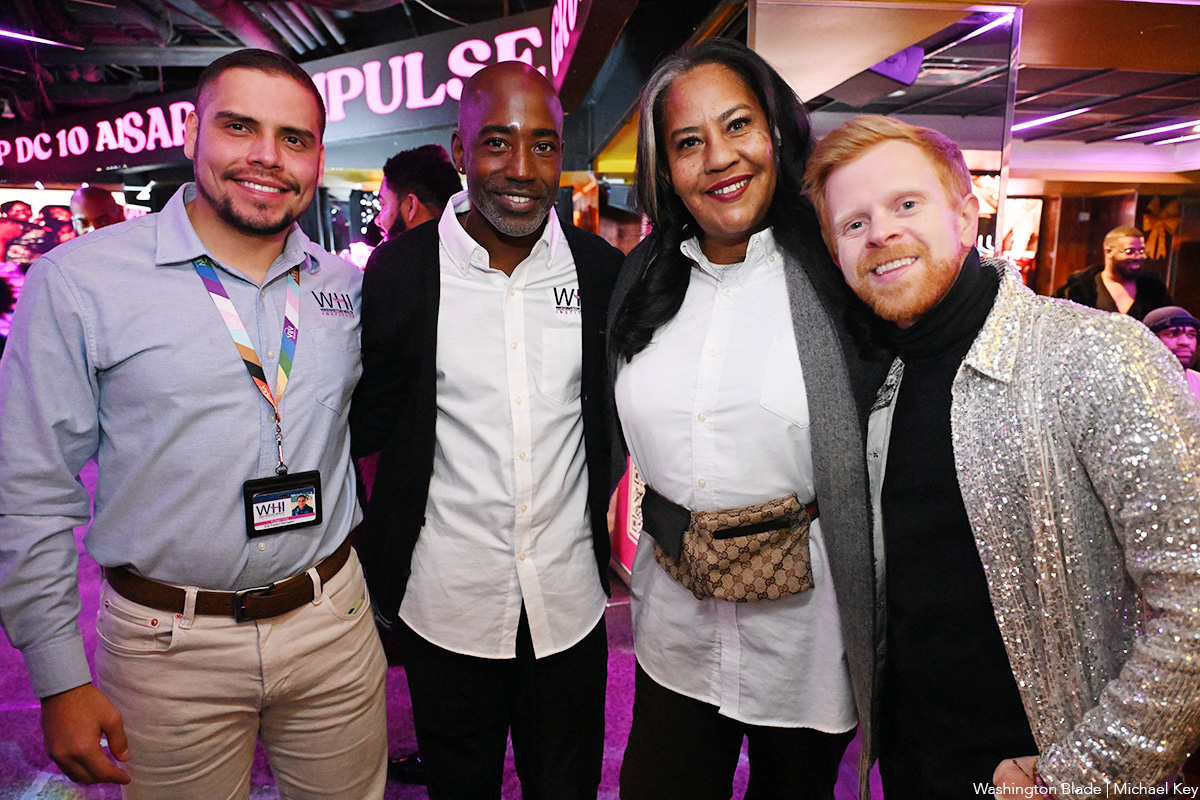

Rob Reiner, most known for directing untouchable classics like “The Princess Bride,” “Misery,” “When Harry Met Sally…,” and “Stand by Me,” died Dec. 14 alongside his wife, Michele Singer Reiner, in their Los Angeles residence. While investigations are actively underway, sources have told PEOPLE Magazine that the pair’s son, Nick Reiner, killed his parents and has been taken into custody.
Reiner was a master of every genre, from the romantic comedy to the psychological thriller to the coming-of-age buddy movie. But in addition to his renowned work that made him a household name, Reiner is also remembered as a true advocate for the LGBTQ community. In 2009, Reiner and his wife co-founded the American Foundation for Equal Rights, helping fight against California’s Prop 8 same-sex marriage ban. They were honored at the 2015 Human Rights Campaign Las Vegas Gala.
In a statement, HRC President Kelley Robinson said: “The entire HRC family is devastated by the loss of Rob and Michele Reiner. Rob is nothing short of a legend — his television shows and films are a part of our American history and will continue to bring joy to millions of people across the world. Yet for all his accomplishments in Hollywood, Rob and Michele will most be remembered for their gigantic hearts, and their fierce support for the causes they believed in — including LGBTQ+ equality. So many in our movement remember how Rob and Michele organized their peers, brought strategists and lawyers together, and helped power landmark Supreme Court decisions that made marriage equality the law of the land — and they remained committed to the cause until their final days. The world is a darker place this morning without Rob and Michele — may they rest in power.”
Reiner’s frequent collaborators have also spoken out as the industry is in mourning, including figures like Ron Howard and John Cusack.
A joint statement from Jamie Lee Curtis and Christopher Guest (who starred in Reiner’s “This is Spinal Tap”) reads: “Christopher and I are numb and sad and shocked about the violent, tragic deaths of our dear friends Rob and Michele Singer Reiner and our ONLY focus and care right now is for their children and immediate families and we will offer all support possible to help them. There will be plenty of time later to discuss the creative lives we shared and the great political and social impact they both had on the entertainment industry, early childhood development, the fight for gay marriage, and their global care for a world in crisis. We have lost great friends. Please give us time to grieve.”
While attending the 2019 HRC Los Angeles Dinner, Reiner spoke out about the need for equality: “We have to move past singling out transgender, LGBTQ, black, white, Jewish, Muslim, Latino. We have to get way past that and start accepting the idea that we’re all human beings. We’re all human beings, we all share the same planet, and we should all have the same rights, period. It’s no more complicated than that.”

